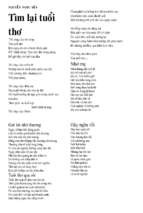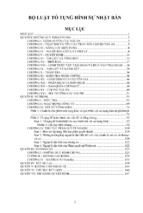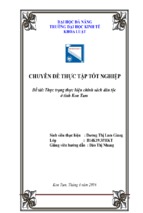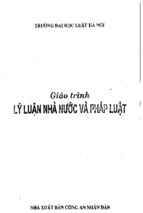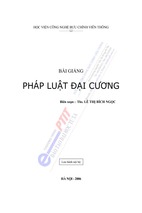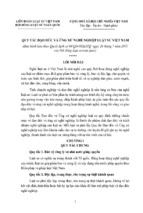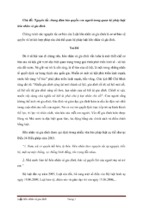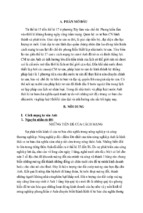UNCITRAL
MODEL LAW ON
INTERNATIONAL
COMMERCIAL
ARBITRATION
UNCITRAL
MODEL LAW
ON INTERNATIONAL
COMMERCIAL ARBITRATION
UNITED NATIONS
1994
CONTENTS
Page
UNCITRAL MODEL LAW ON INTERNATIONAL COMMERCIAL
ARBITRATION
.
General provisions
Chapter I.
Article
Article
Article
Article
Article
Article
Scope of application
.
.
Definitions and rules of interpretation
Receipt of written communications
.
Waiver of right to object
.
Extent of court intervention
.
Court or other authority for certain functions of arbitration
assistance and supervision
.
1.
2.
3.
4.
5.
6.
Chapter 11.
Definition and foon of arbitration agreement
Arbitration and substantive claim before court
Arbitration agreement and interitTI measures by court
Chapter Ill.
Chapter IV.
.
.
.
4
Number of arbitrators
Appointment of arbitrators
Grounds for challenge . . . . . . . . . . . . . . . . . . . . . . . . . . . . . . .
Challenge procedure
Failure or impossibility to act. . . . . . . . . . . . . . . . . . . . . . . . .
Appointment of substitute arbitrator. . . . . . . . . . . . . . . . . . . .
4
4
5
5
6
6
3
4
Jurisdiction of arbitral tribunal
Article 16. Competence of arbitral tribunal to rule on its jurisdiction . .
Article 17. Power of arbitral tribunal to order interim measures
Article
Article
Article
Article
Article
Article
Article
Article
3
Conlposition of arbitral tribunal
10.
11.
12.
13.
14.
15.
Chapter V.
2
3
3
Arbitration agreement
Article 7.
Article 8.
Article 9.
Article
Article
Article
Article
Article
Article
1
2
6
7
Conduct of arbitral proceedings
18.
19.
20.
21.
22.
23.
24.
25.
Equal treatment of parties
Determination of rules of procedure
Place of arbitration
Commencement of arbitral proceedings
Language
Statements of claim and defence
Hearings and written proceedings
Default of a party
iii
.
.
.
.
.
.
.
.
7
7
7
8
8
8
8
9
Page
Article 26. Expert appointed by arbitral tribunal. . . . . . . . . . . . . . . . . . .
Article 27. Court assistance in taking evidence . . . . . . . . . . . . . . . . . . . .
Chapter VI.
Article
Article
Article
Article
Article
Article
28.
29.
30.
31.
32.
33.
9
10
Making of award and termination of proceedings
.
.
.
.
.
.
10
10
10
11
11
11
Article 34. AppJ ication for setting aside as exclusive recourse against
arbitral award. . . . . . . . . . . . . . . . . . . . . . . . . . . . . . . . . . . . . .
12
Chapter VII.
Chapter VIII.
Rules applicable to substance of dispute
Decision making by panel of arbitrators
Settlement
Fonn and contents of award
Tennination of proceedings
Correction and interpretation of award; additional award
Recourse against award
Recognition and enforcement of awards
Article 35. Recognition and enforcement. . . . . . . . . . . . . . . . . . . . . . . . .
Article 36. Grounds for refusing recognition or enforcement . . . . . . . . .
13
14
EXPLANATORY NOTE BY THE UNCITRAL SECRETARIAT ON
THE MODEL LAW ON INTERNATIONAL COMMERCIAL
". . .
ARBITRATION
15
A. Background to the Model Law
B.
......................
15
1. Inadequacy of dOInestic laws. . . . . . . . . . . . . . . . . . . . . . . . . . . . .
2. Disparity between national laws
15
16
Salient features of the Model Law. . . . . . . . . . . . . . . . . . . . . . . . . . .
1. Special procedural regime for international commercial
arbitration
2. Arbitration agreement. . . . . . . . . . . . . . . . . . . . . . . . . . . . . . . . . . .
3. Composition of arbitral tribunal. . . . . . . . . . . . . . . . . . . . . . . . . . .
4. Jurisdiction of arbitral tribunal. . . . . . . . . . . . . . . . . . . . . . . . . . . .
5. Conduct of arbitral proceedings. . . . . . . . . . . . . . . . . . . . . . . . . . .
6. Making of award and tennination of proceedings . . . . . . . . . . . .
7. Recourse against award
8. Recognition and enforcement of awards. . . . . . . . . . . . . . . . . . . .
16
iv
16
18
19
20
20
-22
23
24
UNCITRAL Model Law
on International Commercial Arbitration
(United Nations document Al40117, annex I)
(As adopted by the United Nations Commission
on International Trade Law on 21 June 1985)
CHAPTER I.
Article 1.
GENERAL PROVISIONS
Scope of application *
(1) This Law applies to international commercial** arbitration, subject to
any agreement in force between this State and any other State or States.
(2) The provisions of this Law, except articles 8, 9, 35 and 36, apply only
if the place of arbitration is in the territory of this State.
(3)
An arbitration is international if:
(a) the parties to an arbitration agreement have, at the time of the
conclusion of that agreement, their places of business in different States; or
(b) one of the following places is situated outside the State in which
the parties have their places of business:
(i) the place of arbitration if determined in, or pursuant to, the
arbitration agreement;
(ii) any place where a substantial part of the obligations of the
commercial relationship is to be performed or the place with
which the subject-matter of the dispute is most closely connected; or
*Article headings are for reference purposes only and are not to be used for purposes
of interpretation.
**The term "commercial" should be given a wide interpretation so as to cover matters
arising from all relationships of a commercial nature, whether contractual or not. Relationships of a commercial nature include, but are not limited to, the following transactions: any
trade transaction for the supply or exchange of goods or services; distribution agreement;
commercial representation or agency; factoring; leasing; construction of works; consulting;
engineering; licensing; investment; financing; banking; insurance; exploitation agreement or
concession; joint venture and other forms of industrial or business cooperation; carriage of
goods or passengers by air, sea, rail or road.
(c) the parties have expressly agreed that the subject-matter of the
arbitration agreement relates to more than one country.
(4)
For the purposes of paragraph (3) of this article:
(a) if a party has more than one place of business, the place of business is that which has the closest relationship to the arbitration agreement;
(b) if a party does not have a place of business, reference is to be
made to his habitual residence.
(5) This Law shall not affect any other law of this State by virtue of which
certain disputes may not be submitted to arbitration or may be submitted to
arbitration only according to provisions other than those of this Law.
Article 2.
Definitions and rules of interpretation
For the purposes of this Law:
(a) "arbitration" means any arbitration whether or not administered by
a permanent arbitral institution;
(b)
"arbitral tribunal" means a sole arbitrator or a panel of arbitrators;
(c)
"court" means a body or organ of the judicial system of a State;
(d) where a provision of this Law, except article 28, leaves the parties
free to determine a certain issue, such freedom includes the right of the
parties to authorize a third party, including an institution, to make that determination;
(e) where a provision of this Law refers to the fact that the parties
have agreed or that they may agree or in any other way refers to an agreement of the parties, such agreement includes any arbitration rules referred to
in that agreement;
(j) where a provision of this Law, other than in articles 25(a) and
32(2)(a), refers to a claim, it also applies to a counter-claim, and where it
refers to a defence, it also applies to a defence to such counter-claim.
Article 3.
(1)
Receipt of written communications
Unless otherwise agreed by the parties:
(a) any written communication is deemed to have been received if it
is delivered to the addressee personally or if it is delivered at his place of
business, habitual residence or mailing address; if none of these can be found
after making a reasonable inquiry, a written communication is deemed to
have been received if it is sent to the addressee's last-known place of business, habitual residence or mailing address by registered letter or any other
means which provides a record of the attempt to deliver it;
(h) the communication is deemed to have been received on the day it
is so delivered.
2
(2) The provisions of this article do not apply to communications in court
proceedings.
Article 4.
Waiver of right to object
A party who knows that any provision of this Law from which the parties
may derogate or any requirement under the arbitration agreement has not
been complied with and yet proceeds with the arbitration without stating his
objection to such non-compliance without undue delay or, if a time-limit is
provided therefor, within such period of time, shall be deemed to have
waived his right to object.
Article 5.
Extent of court intervention
In matters governed by this Law, no court shall intervene except where so
provided in this Law.
Article 6. Court or other authority for certain functions
of arbitration assistance and supervision
The functions referred to in articles 11(3), 11(4), 13(3), 14, 16(3) and 34(2)
shall be performed by ... [Each State enacting this model law specifies the
court, courts or, where referred to therein, other authority competent to perform these functions.]
CHAPTER II.
Article 7.
ARBITRATION AGREEMENT
Definition and form of arbitration agreement
(1) "Arbitration agreement" is an agreement by the parties to submit to
arbitration all or certain disputes which have arisen or which may arise
between them in respect of a defined legal relationship, whether contractual
or not. An arbitration agreement may be in the form of an arbitration clause
in a contract or in the form of a separate agreement.
(2) The arbitration agreement shall be in writing. An agreement is in writing
if it is contained in a document signed by the parties or in an exchange of
letters, telex, telegrams or other means of telecommunication which provide
a record of the agreement, or in an exchange of statements of claim and
defence in which the existence of an agreement is alleged by one party and
not denied by another. The reference in a contract to a document containing
an arbitration clause constitutes an arbitration agreement provided that the
contract is in writing and the reference is such as to make that clause part of
the contract.
3
Article 8.
Arbitration agreement and substantive claim before court
(1) A court before which an action is brought in a matter which is the
subject of an arbitration agreement shall, if a party so requests not later than
when submitting his first statement on the substance of the dispute, refer the
parties to arbitration unless it finds that the agreement is null and void,
inoperative or incapable of being performed.
(2) Where an action referred to in paragraph (1) of this article has been
brought, arbitral proceedings may nevertheless be commenced or continued,
and an award may be made, while the issue is pending before the court.
Article 9.
Arbitration agreement and interim measures by court
It is not incompatible with an arbitration agreement for a party to request,
before or during arbitral proceedings, from a court an interim measure of
protection and for a court to grant such measure.
CHAPTER Ill.
COMPOSITION OF ARBITRAL TRIBUNAL
Article 10.
Number of arbitrators
(1)
The parties are free to determine the number of arbitrators.
(2)
Failing such determination, the number of arbitrators shall be three.
Article 11.
Appointment of arbitrators
(1) No person shall be precluded by reason of his nationality from acting
as an arbitrator, unless otherwise agreed by the parties.
(2) The parties are free to agree on a procedure of appointing the arbitrator
or arbitrators, subject to the provisions of paragraphs (4) and (5) of this
article.
(3)
Failing such agreement,
(a) in an arbitration with three arbitrators, each party shall appoint
one arbitrator, and the two arbitrators thus appointed shall appoint the third
arbitrator; if a party fails to appoint the arbitrator within thirty days of receipt
of a request to do so from the other party, or if the two arbitrators fail to
agree on the third arbitrator within thirty days of their appointment, the
appointment shall be made, upon request of a party, by the court or other
authority specified in article 6;
(h) in an arbitration with a sole arbitrator, if the parties are unable to
agree on the arbitrator, he shall be appointed, upon request of a party, by the
court or other authority specified in article 6.
4
(4)
Where, under an appointment procedure agreed upon by the parties,
(a)
a party fails to act as required under such procedure, or
(b) the parties, or two arbitrators, are unable to reach an agreement
expected of them under such procedure, or
(c) a third party, including an institution, fails to perform any function
entrusted to it under such procedure,
any party may request the court or other authority specified in article 6 to
take the necessary measure, unless the agreement on the appointment procedure provides other means for securing the appointment.
(5) A decision on a matter entrusted by paragraph (3) or (4) of this article
to the court or other authority specified in article 6 shall be subject to no
appeal. The court or other authority, in appointing an arbitrator, shall have
due regard to any qualifications required of the arbitrator by the agreement
of the parties and to such considerations as are likely to secure the appointment of an independent and impartial arbitrator and, in the case of a sole or
third arbitrator, shall take into account as well the advisability of appointing
an arbitrator of a nationality other than those of the parties.
Article J2.
Grounds for challenge
(1) When a person is approached in connection with his p
- Xem thêm -


